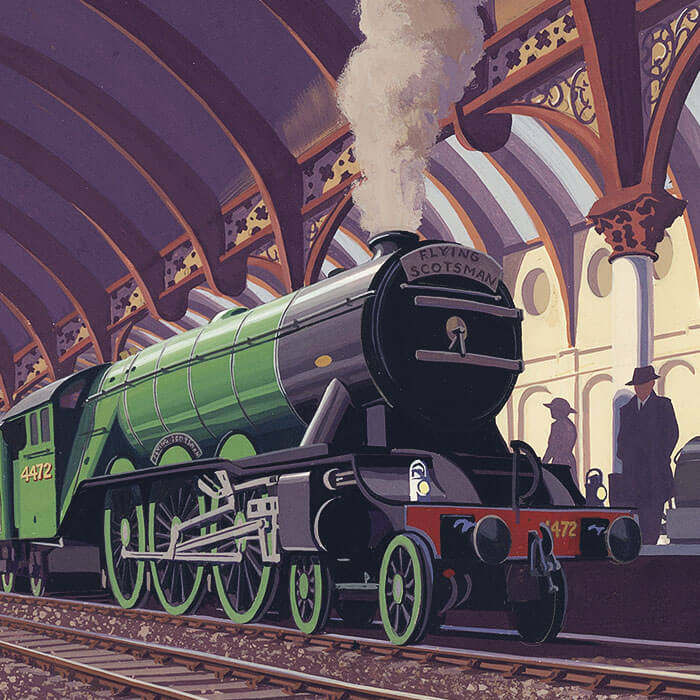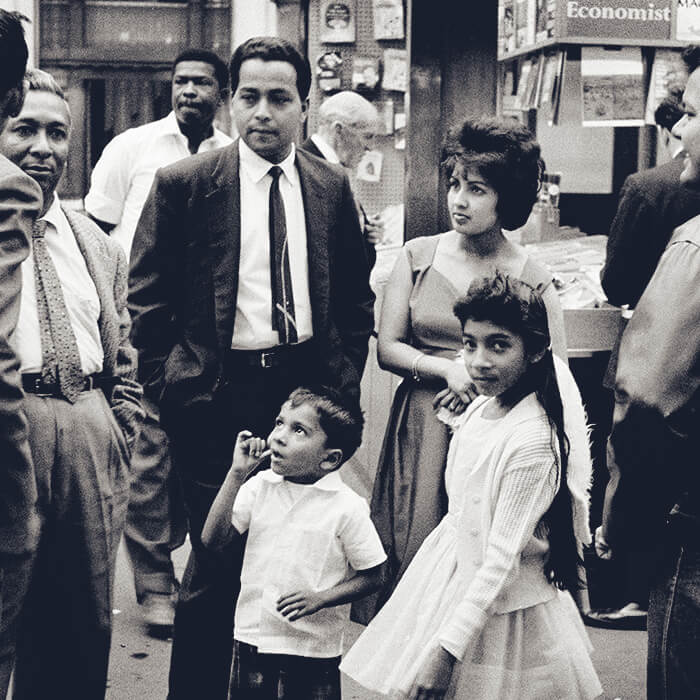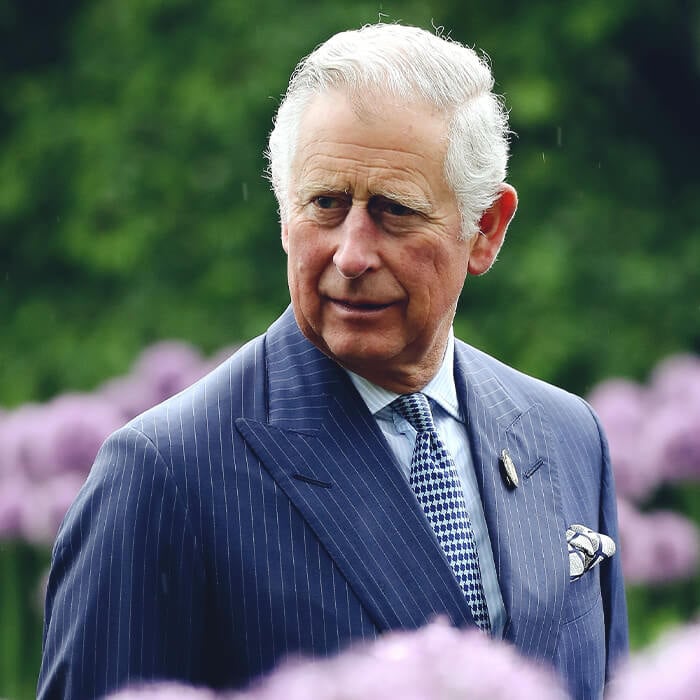Inventing a credible world that exists entirely in the realm of fantasy requires a powerful imagination and, in the case of John Ronald Reuel Tolkien, an abundance of intellect.
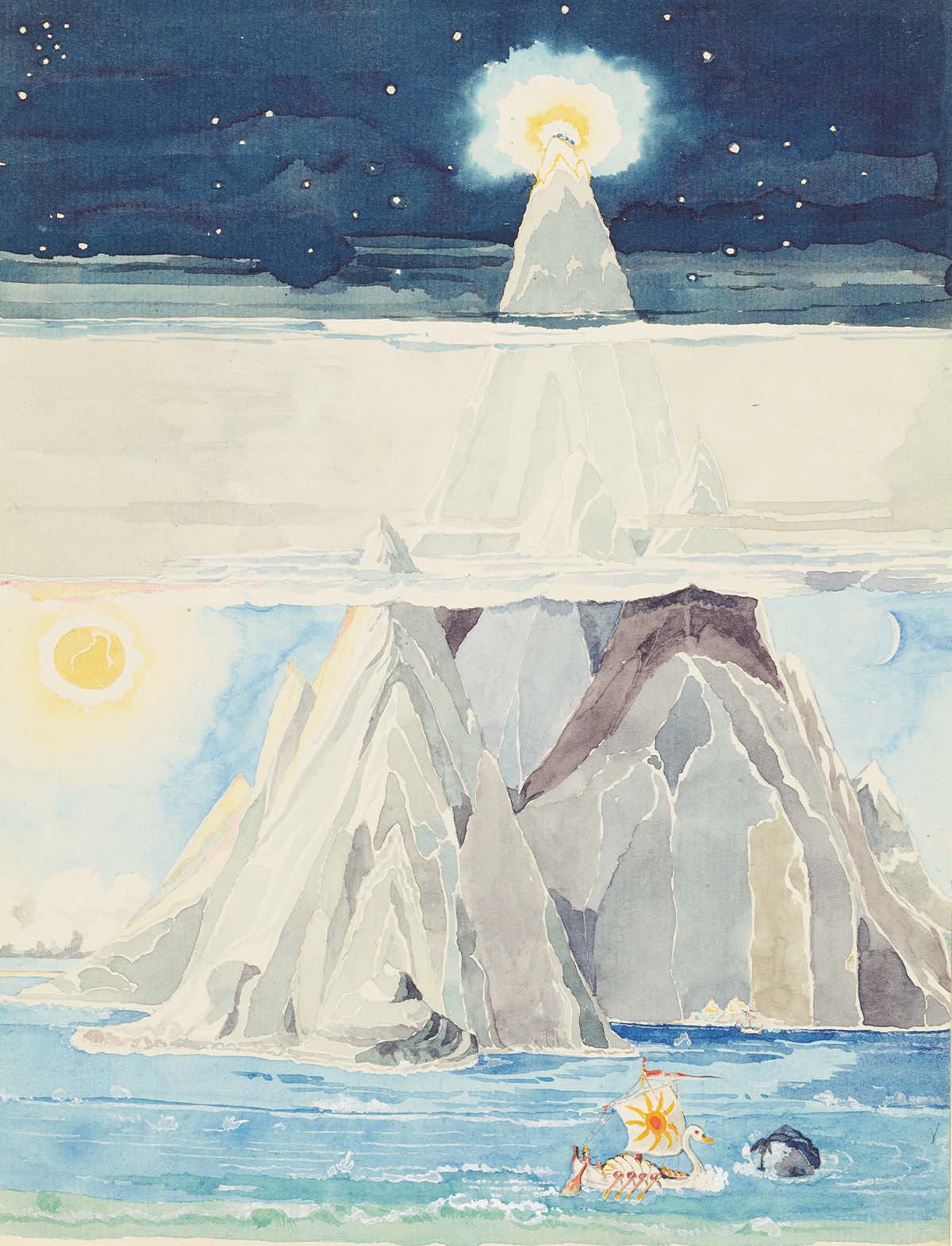
Before writing immensely popular works of fantasy fiction such as The Hobbit and The Lord of the Rings, Tolkien’s mastery of languages positioned him well for his career in philology, the study of languages. Although he was well respected as an academic and scholar, first at the University of Leeds and later as a Professor at the University of Oxford, the publication of The Hobbit in 1937 set Tolkien on the road to global recognition. The classic fantasy tale has been a permanent fixture on children’s reading lists since its release and was followed in 1954–55 by the immensely popular The Lord of the Rings, which is widely regarded as the blueprint for modern fantasy fiction.
Whilst the fantasy world of Middle-earth and its rich mythology brought Tolkien’s writing and storytelling talents to the attention of a global audience, years earlier he experienced the brutal reality of the First World War. Serving as a Second Lieutenant in the Lancashire Fusiliers, he went on active duty at the Western Front, enduring four months of trench warfare as part of the Somme offensive.
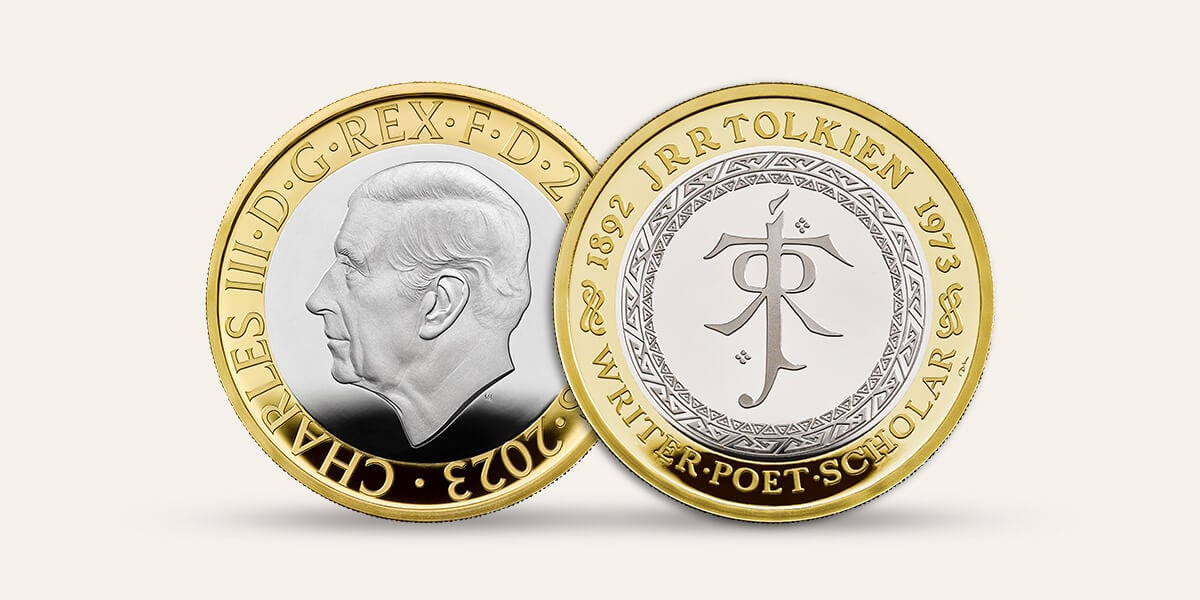
Creator of Middle-earth
Tolkien passed away in 1973 although, 50 years later, the father of modern fantasy fiction still has a palpable influence on the genre. His trademark monogram, encircled by a runic pattern skilfully created by the artist David Lawrence (pictured below), will forever grace this commemorative UK £2 coin. ‘NOT ALL THOSE WHO WANDER ARE LOST’, a quote from the poem ‘The Riddle of Strider’, which features in Tolkien’s The Fellowship of the Ring, serves as the coin’s edge inscription.

“JRR Tolkien’s monogram is an elegant creation: a mysterious symbol redolent of alchemical signs and magical scripts. It also had a certain gravitas. I quickly saw that this had to be central to the design. Something ring-like and circular was obviously needed to contain and frame the monogram.
“I created several roundels to contain the monogram. Eventually, these were whittled down to abstract shapes; versions containing tortuous intertwined serpents were interesting, but they were somehow distracting and lacked gravitas. I created the abstract shapes from scratch, choosing a couple of fonts that have a slightly quirky, magical look, whilst remaining fully legible.”
David Lawrence
Related articles
![]()





